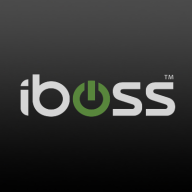


Zscaler Zero Trust Exchange Platform and Forcepoint ONE represent strong contenders in the secure access solutions market. Zscaler appears to hold an advantage due to its seamless cloud integration and user satisfaction despite higher costs, while Forcepoint ONE is recognized for its robust data security features and competitive pricing.
Features: Zscaler Zero Trust Exchange is equipped with seamless VPN-like capabilities with its ZPA, superior cloud DLP functionalities, and a range of integrated security features that boost scalability. Forcepoint ONE excels with a solid CASB solution, exemplary DLP capabilities, and advanced shadow IT control, even if it lacks Zscaler's fully integrated cloud-native architecture.
Room for Improvement:Zscaler needs enhancements in handling multi-tenant architecture and providing granular data service control, along with expanding its DLP coverage. Forcepoint ONE could benefit from more straightforward integrations and training to reduce installation complexity, and improving larger deployment compatibility is advisable.
Ease of Deployment and Customer Service: Zscaler receives praise for seamless deployment across various cloud environments but faces criticism for its support response time. Forcepoint ONE, although primarily cloud-based, demands additional training for effective deployment and has received mixed feedback on customer service and technical support.
Pricing and ROI: Zscaler is seen as costly, yet users report a strong ROI due to its feature-rich integrated solutions. Forcepoint ONE offers a cost-effective solution despite upfront training costs and competitive pricing. Both solutions emphasize understanding their licensing structures for maximizing value.
| Product | Market Share (%) |
|---|---|
| Zscaler Zero Trust Exchange Platform | 10.0% |
| iboss | 2.3% |
| Forcepoint ONE | 2.0% |
| Other | 85.7% |



| Company Size | Count |
|---|---|
| Small Business | 6 |
| Midsize Enterprise | 6 |
| Large Enterprise | 5 |
| Company Size | Count |
|---|---|
| Small Business | 6 |
| Midsize Enterprise | 3 |
| Large Enterprise | 12 |
| Company Size | Count |
|---|---|
| Small Business | 16 |
| Midsize Enterprise | 11 |
| Large Enterprise | 41 |
Iboss offers a comprehensive cloud-based security platform valued for its scalability and autonomous features, ensuring robust security with easy deployment and management capabilities.
Renowned for its robust security architecture, Iboss integrates seamlessly within diverse networks, delivering efficient granular filtering and advanced content categorization. Its single pane of glass console provides ease of management, allowing rapid scalability suitable for rapidly deploying environments. Operates in BYOD setups due to inline filtering without device installation. Integration with cloud-based applications enhances user control, and features like SASE, SSL inspection, and ChatGPT risk protection stand as highlights. Despite its strengths, users have pointed out areas for enhancement like direct navigation in reports, SSL decryption, and better cloud integration while having room to improve data loss prevention.
What are the most important features of Iboss?The usage of Iboss spans educational institutions, specifically K-12, to enforce internet policies, protect data, and support remote work environments. It provides web filtering and security frameworks to ensure safe browsing. Its platform-as-a-service model offers flexibility for both cloud-based and on-premises requirements, integrating seamlessly to deliver enhanced security features suitable for various deployment needs including zero trust, CASB, and network security for work-from-home setups.
Forcepoint ONE is a comprehensive cybersecurity platform that provides organizations with a unified approach to protecting their critical data and assets. It offers a range of solutions that cover everything from network security and cloud security to data protection and insider threat prevention.
With Forcepoint ONE, organizations can gain complete visibility into their security posture, identify potential threats, and take proactive measures to mitigate risks.
One of the key features of Forcepoint ONE is its ability to provide real-time visibility into user behavior across all endpoints, networks, and cloud environments. This allows organizations to quickly identify and respond to potential threats, such as insider threats or malicious activity from external actors. Additionally, Forcepoint ONE offers advanced threat intelligence capabilities that leverage machine learning and AI to detect and respond to emerging threats. Another important aspect of Forcepoint ONE is its data protection capabilities.
The platform offers a range of solutions for protecting sensitive data, including data loss prevention (DLP), encryption, and secure web gateways. These solutions help organizations ensure that their critical data is protected both at rest and in transit, regardless of where it is stored or accessed.
Forcepoint ONE is a powerful cybersecurity platform that offers a comprehensive set of solutions for protecting organizations against a wide range of threats. With its advanced threat intelligence capabilities, real-time visibility into user behavior, and robust data protection features, Forcepoint ONE is an ideal choice for organizations looking to take a proactive approach to cybersecurity.
Zscaler Zero Trust Exchange enhances security with seamless cloud-based connectivity and VPN-less operation, offering integration with multiple identity providers and advanced security features, suitable for remote work environments.
Zscaler Zero Trust Exchange provides secure, adaptive connectivity without traditional VPNs, allowing organizations to replace legacy systems and bolster remote work security. The platform offers cloud-based protection, single sign-on, dynamic URL categorization, and scalable solutions. While advanced security features like DLP and threat protection enhance data protection, users may face issues with speed, connectivity, and some customization options. Integration challenges, latency due to multi-tenant hosting, reporting delays, and licensing costs require consideration. It supports secure internet access and private application security, ensuring traffic control and data compliance.
What are the key features of Zscaler Zero Trust Exchange?Zscaler Zero Trust Exchange is deployed across industries to secure remote access and enforce zero trust principles. Organizations in finance, healthcare, and technology sectors utilize it for secure internet access and visibility into cloud applications, enhancing performance and compliance in dynamic environments.
We monitor all Cloud Access Security Brokers (CASB) reviews to prevent fraudulent reviews and keep review quality high. We do not post reviews by company employees or direct competitors. We validate each review for authenticity via cross-reference with LinkedIn, and personal follow-up with the reviewer when necessary.